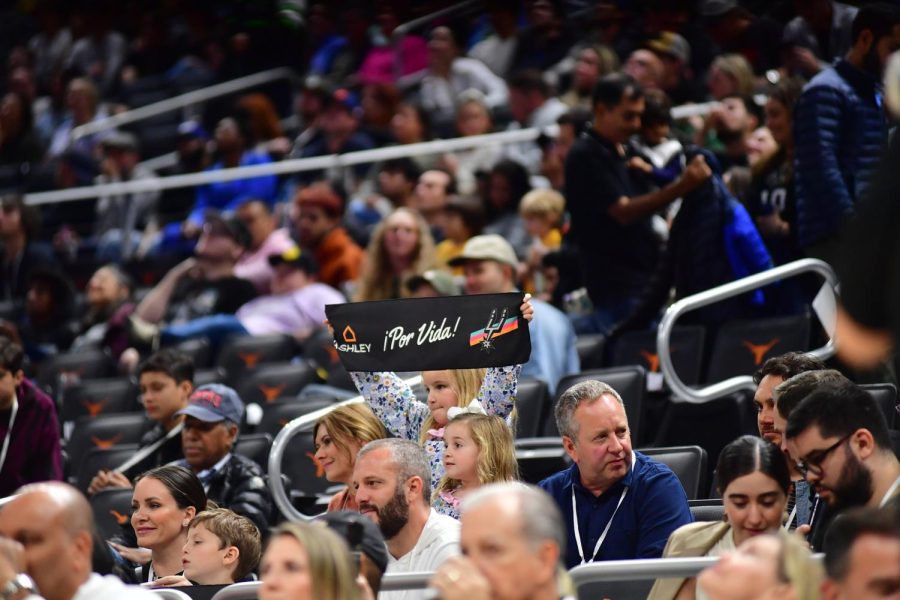Do we take crowds at games for granted?
Did the fanless sporting events during the pandemic relight the importance of attending games?
June 8, 2023
The crack of the bat, the squeak of shoes on a freshly polished court, the clattering of pads or the banging of sticks on the ice. These mundane moments of athletic feats conjure up memories of the high-class attics of America’s four major sports. We all remember our first time attending our first sporting event — the feeling of walking into that cathedral of sporting entertainment dawning with your favorite team’s colors. The smells of overpriced beer and freshly cooked hotdogs hit you after your ticket was accounted for.
Live sports: there is nothing else quite like it. Over the years sports have become more than just a simple three-hour late afternoon outing into something much more. These sporting franchises have become integral parts of civic pride. Simple logos, uniforms and numbers have become part of legend and lore. Players have become cornerstones in communities with some earning statues, street names, burgers or even murals as is evident here in San Antonio with our beloved Spurs players. Moments can be a segue into a friendship to two total strangers or bridge common ground with bitter enemies. That is the power of fandom.
If you were not living under a rock last college football season you probably either read, heard or witnessed the controversy that took the national media ahold with college football spectators rushing the field after significant wins during the season. Most notably with Tennessee Volunteer fans storming the field, cigars in their mouths over their first win over Alabama Crimson Tide since 2006. Schools like Texas Tech, LSU, South Carolina and even Vanderbilt partook in the action. All of this fan interaction has even caused the Southeastern Conference to toy around with the idea of making schools lose home games or even harsher, forfeit games. But who can blame these fans who had been clamoring for the opportunity to get back to the stadium and root for their favorite teams and players?
Fandom was put on hold for a time. As we all know the pandemic affected all of us, it especially affected us sports consumers. The NBA and NHL suspended operation in the middle of the season making fans stuck on the downward crest of the season not knowing if play would return. Play did eventually return but returned in a “Bubble” format with fans not having the opportunity to attend games. The MLB season was shortened from 162 games to just only 60, with again no fans in attendance. Spectators all around the country and the world were neutered just to their living room televisions.
Over the course of the pandemic, franchise owners, league commissioners and even players definitely saw the effect that fans have on the game itself. Fans are truly the lifeline of a franchise and they can decide the future of said franchise. The energy and soul that fans contribute to the game are just as important to the sport as the training and technicalities that come from the players and coach’s on-field product. Fandom and overall pride make sports a truly unique entertainment experience. Huge rivalry games are chock full of energy coming from fans leading up to the game with all of the surrounding banter outside and inside the arena. That infectious spirit is spread down to the players on the field and the court.
As fans, we could have never thought of empty stadiums and zoom crowds becoming the norm. We took the atmosphere for granted. While televisions can be a substitute for games, they can never replace the sensation of sitting on plastic chairs with other crazed fanatics heckling opposing fans, yelling at players to perform better on the field or calling out to the guy selling peanuts to come your way so you can spend the two dollars on his goods. No matter what your somewhat intoxicated uncle says, the players and referees can’t hear your wails from your recliner but in the arena maybe they can. After the pandemic, both players and the fandom itself gained a new appreciation that comes with a packed stadium full of crazed fanatics. We as fans are the lifeline of sports itself, we breathe life into these otherwise soulless corporations of organized sports.







